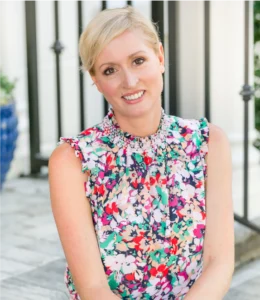Think about the last time you prepared for something BIG. Maybe it was a marathon after months of training. Perhaps a huge presentation at work, or a keynote on an important stage.
Your anxiety level started climbing in the weeks leading up to The Big Day, didn’t it?
Me too. It’s totally normal, and I’m right there with you.
As we got closer to the publication of Burnout Immunity: How Emotional Intelligence Can Help You Build Resilience and Heal Your Relationship with Work, I noticed my system revving up a little more each day.
It was mostly excitement that generated a lot of adrenaline and dopamine—the good stress hormones that can keep us feeling focused and motivated. But there was a good amount of cortisol going on, too.
I’m often rushing from one thing to the next, with less time than I’d like to transition and prepare. And I know—as a recovered “burnoutee” and expert— that if I’m not getting enough recovery time, or doing the right recovery things, my cortisol levels will elevate and eventually make me depleted and unable to give my best.
No thank you!
But it’s not just in that final month that I had to manage my stress and hormones. The process of writing, promoting and marketing a book is a marathon, and each stage has its own challenges:
The writing marathon
Writing Burnout Immunity required me to sacrifice many evening and weekend personal activities. Word count goals and editing deadlines often took the place of exploring new hiking trails, regular exercise, and family beach trips.
On top of that, research is serious mental work. I love to nerd out about emotional intelligence but parsing hundreds of research articles, trade publications and books required focus and organization. I ate a lot of grab-and-go snacks (turkey jerky was my go-to) and yes, sometimes I dreamed about citations (you’ll see why when you see the book’s index!).
The abundance of research even fueled some anxiety: my desire to be thorough clashed with the need to keep Burnout Immunity less than 900 pages (you’re welcome), and occasionally I second-guessed my choices about what to include in the book.
Finally, there was the process of requesting advance praise. That’s when an author reaches out to leaders in her field to ask them to a) read her book and b) provide a quote endorsing it. Those are the quotes that end up on the book jacket and purchase pages.
I may be immune to burnout these days, but I’m not immune to the fear of rejection. Asking heavy-hitters like Dan Goleman, Adam Grant, Annie McKee, Marshall Goldsmith, and Richard Boyatzis was nerve-wracking, but worth it: they all said yes!
The promoting and selling marathon
Promoting and selling requires as much time as writing did, but flipped: with media and podcast interviews, speaking gigs and travel happening during the day, “work work” as a Senior Fellow at Penn now happens in the evenings and on weekends. And spring is the busy dissertation and graduation season!
And those daytime hours can push my comfort zones, with anxiety showing up before interviews and speaking events: “What will people think? Will I say the wrong thing? Will I forget something important?”
Good ol’ fear of rejection still makes an appearance, too. When I ask friends and colleagues for help promoting or selling the book, my inner voice says, “They’re all busy, Kandi! They have better things to do.” In reality, every one of you has had the opposite response—thank you!
The final lap
The final lap of the Burnout Immunity bookathon was intense. In my next blog, I’m sharing the seven practices keeping this burnout expert from, well, burning out.
I want to see global burnout levels plummet and I know they can. Thanks for being here with me.
— Kandi




